Belinda Kirk's new book, The Adventure Revolution, makes the strong argument that adventure is essential to wellbeing - that to not adventure is to risk a worse life. We spoke with her at length about her research and its implications.
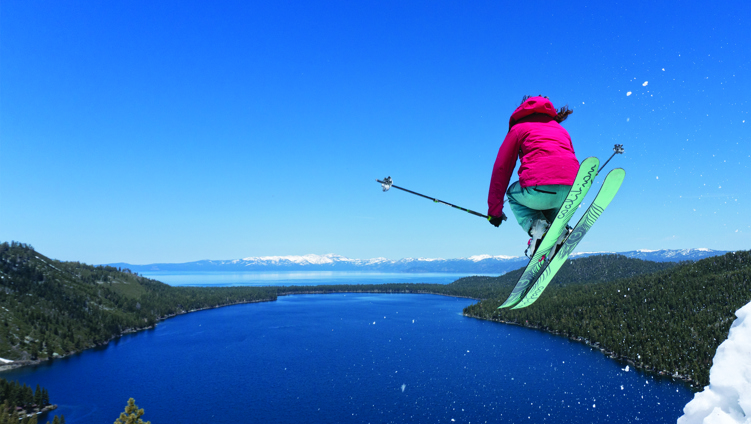
Belinda Kirk's new book, The Adventure Revolution, makes the strong argument that adventure is essential to wellbeing - that to not adventure is to risk a worse life. We spoke with her at length about her research and its implications.
Give us the elevator pitch for Adventure Revolution …
Adventure Revolution is the first book to explain why adventure is essential to wellbeing.
It puts a groundbreaking case for ditching the living room in favour of a longer, happier, and more adventurous life. It's also a fantastic read packed with thrilling, moving and inspiring stories.
Drawing on lessons I’ve learnt from more than two decades of leading groups into the wilderness around the globe, my own research with modern hunter-gatherers, and the latest findings in neuroscience and psychology, I show how adventure has the power to transform the timid into the confident, the addicted into the recovering, and the lost into the intentionally wandering.
It came out this month with Piatkus / Little, Brown Book Group.
Belinda camping, and the cover of Adventure Revolution (photo courtesy of Belinda Kirk)

Adventure Revolution argues that adventure is essential to wellbeing. What counts as an adventure in this context? What are the ingredients required?
It’s the element of adventure itself – a mix of challenge, adversity and uncertainty – that is generally overlooked when we consider wellbeing. It’s the difference between taking some exercise, or spending time in nature passively soaking up the benefits, and being immersed in an exciting outdoor challenge. Adventure is the ingredient that marks the difference between tennis and climbing, swimming and wild swimming, forest bathing and exploring your local woodland.
When I think of adventure, especially in the context of wellbeing today, it’s a voluntary activity with three essential elements: challenge, uncertainty and adversity. If we look at each of these three elements in turn, we can get a closer understanding of what ‘adventure’ entails.
A challenge is a task or situation that tests someone’s abilities. It can take place in the most inhospitable terrain, from scaling the highest mountain and kayaking through the wildest waters to crossing deserts in the hottest conditions – the kind of well-outside-your-comfort-zone adventure that tests your mental and physical abilities as you strive to reach the most extreme peak, pole or shore. This acute end of adventure can include multi-day expeditions or extreme sports, like BASE jumping, that are experienced in just minutes. Many of the stories shared across these pages relate to this kind of great, big, challenging adventure. However, some of the stories relate to smaller yet equally transformational types of adventure too. The smaller kind of challenge involves choosing to follow smaller pockets of excitement, which still play at the edges of your comfort zone but fit into your weekend, evening or lunch break. It could be a ten-minute break from the routine where you engage in parkour, climb a tree or explore a new area around your home or office; it could be an evening or weekend away in nature to enjoy the thrill of successfully lighting your own campfire, climbing a hill to watch the sunrise or sleeping out under the stars. Adventure involves challenge, whether big or small, in your garden or far from home.
The most exciting challenges are those that involve uncertainty, where there are no guarantees or binary outcomes. Without uncertainty, we have a familiar and predictable experience; we don’t have adventure. Adventurers choose to go into the unknown; for me, it’s the difference between jogging the same circuit around town or pioneering new routes every time I leave the house. Choosing to step into the unknown is psychologically uncomfortable: you will feel anxious, even afraid, because you are missing information. But you have a choice: you can continue to crave certainty, or you can start to recognise that it’s the uncertainty that is fuelling your engagement, and this is where learning and growth happen.
If you don’t at some point feel uncomfortable, cold, hot, tired or scared, it’s not an adventure. Adversity is an important part of adventuring, because it signals to us that we are pushing ourselves, overcoming physical or psychological obstacles. Explorers choose to go on adventures despite knowing there will be difficulties to bear because they know there is a greater payoff in the end. The taste of success is sweeter when you’ve sacrificed along the journey. The way in which we can change our response to adversity is another key benefit of participating in adventure that you can take back to everyday life. Society is driving us to strive to be comfortable above all else, but this isn’t our natural state – it turns out adversity is actually good for us. A 2010 study published in the Journal of Personality and Social Psychology assessed 2,398 participants and found that people who had experienced some lifetime adversity reported better mental health and wellbeing not only than those with a history of frequent adversity, but also of subjects who had experienced no difficulties in life. The researchers suggest that “in moderation, whatever does not kill us may indeed make us stronger.”
Belinda teaching ice caves (photo courtesy of Belinda Kirk)
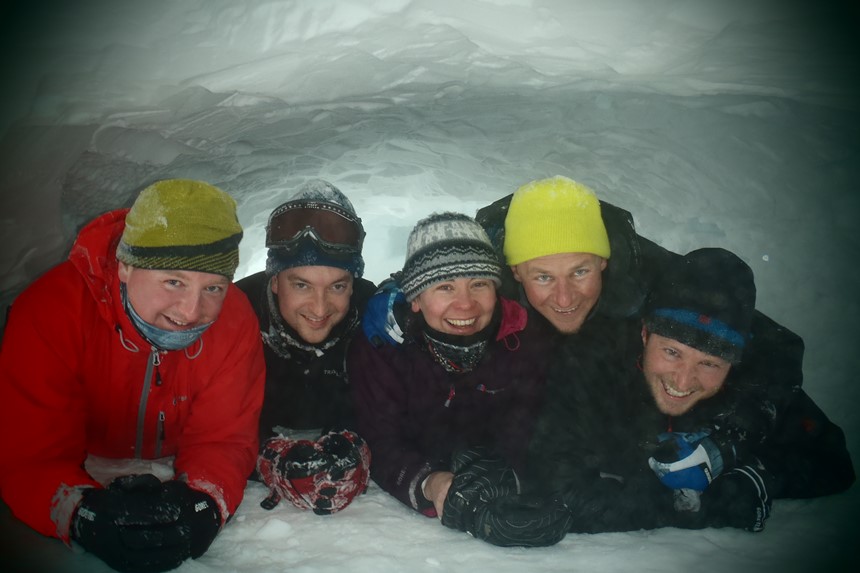
If adventure is essential to our wellbeing, it follows that not adventuring is risky. What is the nature of this risk?
Modern life has become more rule-bound and routinised. At times, I have felt that routine has made my life feel repetitive. The beep of the alarm. The stress of the commute. The rules of the road and the office. Check my teeth and hair before heading in for an unremarkable workday. After, get some exercise (maybe). Watch TV. Check social media (again). Eat, sleep, start again. Each day bleeds into the next. Many of us in industrial societies have experienced these routines, beset by rules, at some point in our lives.
We have an innate need to belong, so we dutifully follow rules and conform. This tendency has enabled humanity to build civilisations. We’re told that by behaving like this we can create efficiency and achieve success, but we’ve somehow lost the balance along the way. We’ve sacrificed our freedom and our ability to embrace uncertainty for the illusion of control and the chance of society-sanctioned success. We’ve abandoned our natural ability to live adventurously and to dance to the beat of our own drum.
Predictability and boredom have replaced uncertainty, so much so that we have become unaccustomed to the unknown or unplanned, even fearful of it. Instead of seeing the boundless opportunities within each unique day, a lack of certainty causes feelings of anxiety. This can lead us to live less boldly, limiting ourselves by avoiding challenges, underestimating what we are capable of and taking fewer risks.
We’ve put so much emphasis on health and safety over recent years to the detriment of risk, but I believe we need to find a balance between mental health and safety. Our increasing litigiousness and obsession with physical safety at all costs have helped to plant and grow seeds of fear, sometimes irrational ones. This fear has even made us crueller: our increasingly risk-averse society is less likely to show kindness and will often avoid helping someone in trouble for fear of being sued.
Belinda in Honduras (photo courtesy of Belinda Kirk)
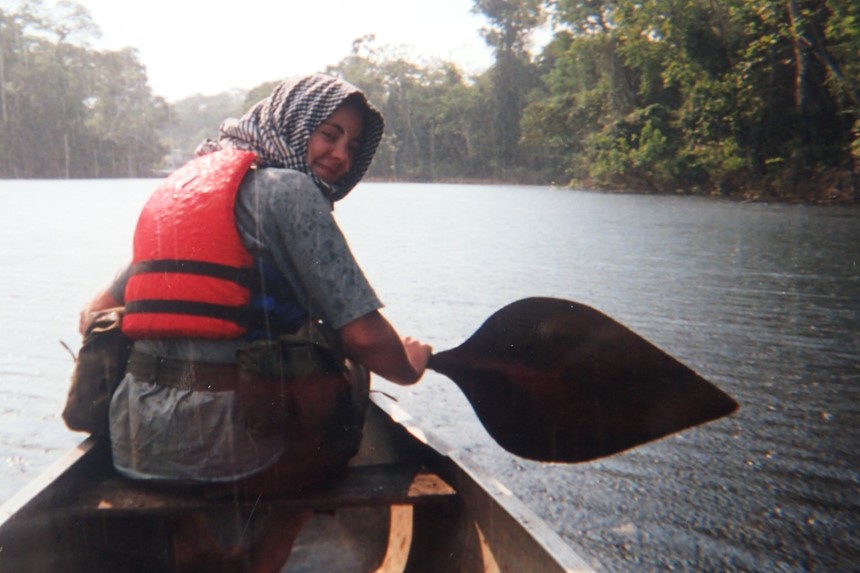
Some people might see the book and feel that adventure may improve many people’s wellbeing, but it really isn’t for them. Maybe they feel it wouldn’t work given their mental health or other issues. Do you feel the benefit of adventure is universal?
Absolutely I believe we were all born to adventure. It's in our DNA. Our bodies and minds evolved to live as hunter gatherers. It's the mismatch between how we were designed to live and how we actually live in our modern world that is creating so many ‘diseases of civilisation’. These include physical (diabetes, obesity, autoimmune responses) and mental (ADHD, anxiety, depression) illnesses.
It seems we’ve created modern lifestyles that counter what our minds were designed to do. A hunter-gatherer lifestyle that is defined by improvisation, exploration, opportunistic problem-solving and play has been replaced by a modern approach characterised by planning, duty and discipline. This long term planning causes chronic stress, an ‘unnatural’ type of stress associated much more with the modern world and less with the lives of our ancestors.
To resolve the conflict between the modern environment and our ancient genome, the growing consensus amongst researchers is that we should adopt elements of a lifestyle that mimics the beneficial characteristics of the Palaeolithic era. For example there is evidence we could benefit from a paleo diet or barefoot runnin. Psychologically it could be more time in nature or away from our synthetic, always-on society through mindfulness. However I’d argue that outdoor challenge is the most natural thing you can do. Hunter gatherers’ lives were permanent adventures.
As someone who has a tendency to over worry myself, I’ve used adventure as a respite from the constant pressures of the modern world. Before you leave on the adventure, you have a million and one things to do, but as soon as you set foot on the plane, sit on the seat of your bike or turn away from your car with a full backpack, life immediately becomes so much simpler. Any nagging feelings dissipate and are replaced by something more exciting: the challenge, the unknown, demanding you to be alert, engaged, committed. Ironically, the times when I have found most peace have been cutting through a dense jungle or facing the elements out at sea, times that others assume I must have been most stressed. Instead, during those moments I’m enveloped in a feeling of calm and purpose. It is my escape from chronic stress, and it’s my path to personal growth through what I call the ‘Adventure Effect’.
Belinda rowing (photo courtesy of Belinda Kirk)
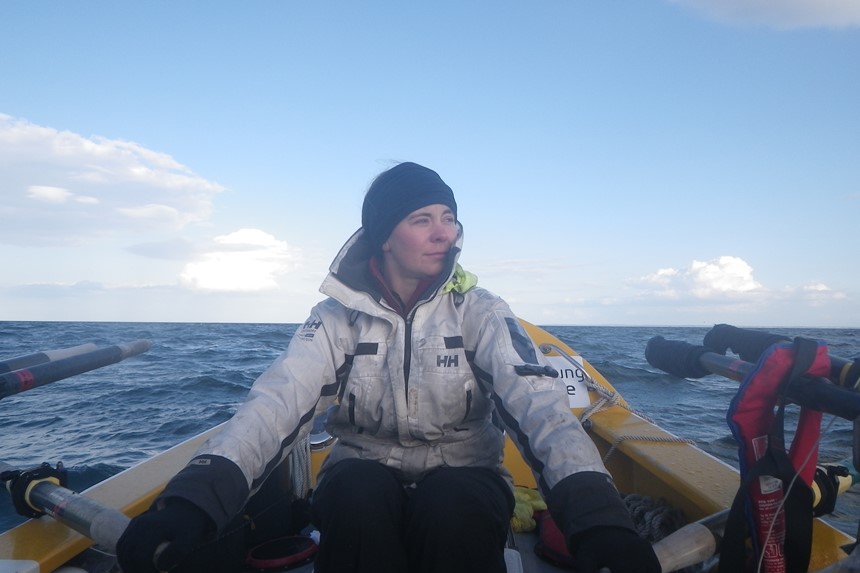
The book draws on both your personal experiences and wider research. What did the research process look like?
Over 25 years of taking people on adventures, I’d seen its transformative power firsthand. But I wanted to know how it worked - and why we seem to undervalue it in modern societies. Adventure is seen as a luxury for a small elite crowd rather than something innately human. I guess I wanted to re-brand adventure so others could see it the way I see it - as essential to wellbeing and, with the problems we face now, as an opportunity to help people live their best lives.
I’d been speaking about this for nearly a decade but I needed to back up my ideas for them to be taken seriously. I properly started sharing the idea that ‘adventure can change lives for the better’ about seven years ago through Explorers Connect by finding, writing and sharing stories of transformation to my community. I started planting the seed that adventure is not frivolous but can in fact be life-changing.
I started researching it even earlier, reading scientific papers from a huge range of disciplines including adventure education, outdoor education, positive psychology, anthropology, tourism, evolutionary psychology and more. I was in no rush, I was simply interested to find out why for my own satisfaction. I remember wishing that someone else would write the book I was searching for, but no one did. So I ended up writing the book myself!
Adventure Revolution is the first book to join the dots and try to explain why and how adventure is essential to our wellbeing, and how we can add adventure to our lives and societies. I hope I’ve done the subject matter justice.
Belinda on the River Thames (photo courtesy of Belinda Kirk)
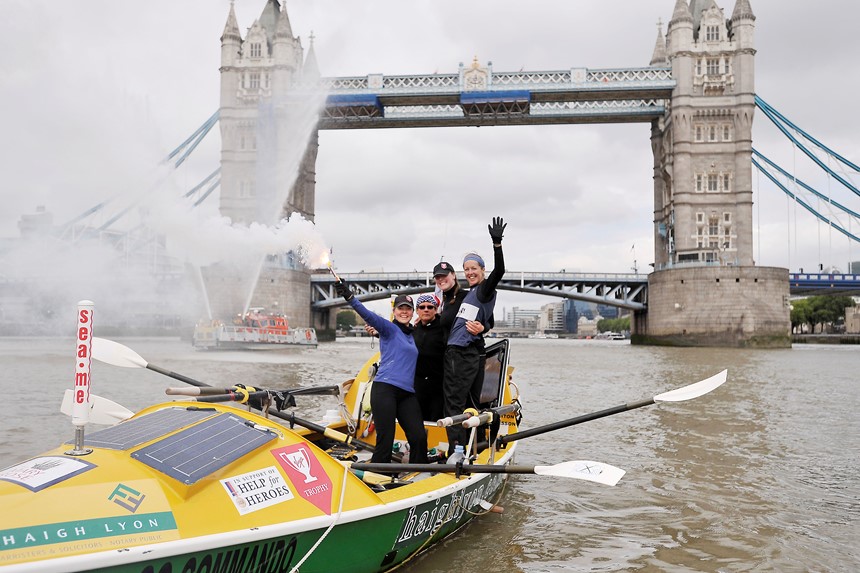
And what about determining the scope of the book? Were there any other dimensions that you wanted to include but couldn’t in the end?
I did so much research and had so many other fantastic stories of transformation but I really couldn’t include it all. The first draft I sent to my publisher was 95,000 words long. It was a mission to get it down to that. But I cut a further 30,000 words to the current book length.
There’s so much more to say. There are some really interesting research papers, ideas and theories, my own and others, that I’d love to share sometime, but until more conclusive research comes in or I / someone else gets a brainwave they are a work in progress.
Did anything particularly surprise or fascinate you in the process?
Just how hard it is to write a book. I have a newfound respect for all authors.
I would never have sat down long enough to write a book were it not for lockdown. Adventure has taught me to be resilient, but it’s also taught me to find the silver linings. Despite the difficulties of the past eighteen months, I would not have finally shared my message in this book, so I am truly grateful for this.
I’d been asked to write books before, memoirs mostly, about my extreme expeditions, but I’d never really fancied sitting down to do it. Adventure Revolution was instead the book I felt compelled to write. It's not just a book to me, it's the explanation of my mission. I have a message and I want to spread it. I want to make a difference, whether by book, blogs or speaking.
Writing a book, or doing anything where you put your heart and soul into something before giving it to the world to share/engage in/judge ... this is truly leaving your comfort zone. It's painful at times, but in the end it’s always worth it, even if no one reads it (please do though!). Because it’s where we're at our most authentic, where we experience flow and joy, where we learn that we can deal with hardship and move forward, where we find that we can do more than we thought. Writing is much like an adventure.
The neuroscience aspect sounds fascinating. Without ruining the book, were they any threads here that you find particularly interesting?
I found it really interesting to deep dive into why the brain ‘needs’ adventure. Leading molecular biologist John Medina seems to agree that the evolutionary mismatch I mentioned earlier goes to a molecular level and that we need a change.
He states: “The brain appears to be designed to solve problems related to surviving in an unstable outdoor environment, and to do so in nearly constant motion ... If you wanted to create an education environment that was directly opposed to what the brain was good at doing, you probably would design something like a classroom. If you wanted to create a business environment that was directly opposed to what the brain was good at doing, you probably would design something like a cubicle. And if you wanted to change things, you might have to tear down both and start over.”
You’ve headed up Explorers Connect for over a decade now! What was the initial intention, and how has this evolved?
I initially started Explorers Connect because I knew expeditions had changed my life. I used to believe that everyone should do at least one expedition in their life because that would help them find themselves, discover what they are capable of and build confidence, just as it did for me.
However, over the years I realised that it wasn’t travel or expeditions per se. Adventure was the critical element. So over the years it became less about promoting other explorers and expeditions (although I still do that when I can) than inspiring and enabling people to do any size challenge. Smaller adventures aren’t better or worse, they are just usually the earliest step. This way my work was having a greater impact because I was enabling more people to start on this adventurous path.
Explorers Connect is a passion project; it has evolved as my understanding and the world has changed. It still has the same mission, to inspire and enable people and to make adventure more accessible, but over the years I focused on different things to get a greater impact. I help bring teams together, host a community via adventure events including our annual festival (Base Camp Festival) and the national night of adventure (Wild Night Out), run training courses to enable others to do more for themselves. I even set up the first conference to explore the link between adventure and wellbeing - Adventure Mind - which brought 200 international researchers, practitioners and policy makers together in February 2020. The book is the next step for me personally, but also for Explorers Connect. Finally the reason Explorers Connect exists is fully explained.
The Explorers Connect community (photo courtesy of Belinda Kirk)
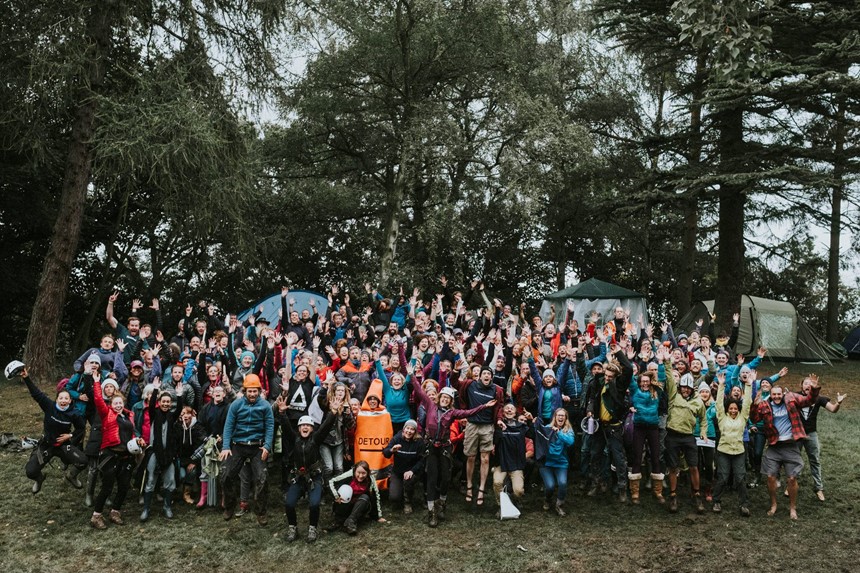
During this time have you noticed any major changes in the adventure community?
I am currently in the process of deciding which bits of the Explorers Connect puzzle make the most difference, so I can focus energy in the best place. For example, when I established Explorers Connect there was nothing else like it. However, since Meetup and Facebook there are now so many adventure groups that growing that side of Explorers Connect seems unnecessary. There are literally thousands of wonderful communities to join. The community we have already is a bit like a family - never cliquey, always welcoming - but there’s no drive for growth.
However, other services I offer through Explorers Connect are completely unique, such as the free teammate finding service, some of the training courses and the work around adventure and wellbeing, so I’m trying to figure out what could make the most impact. I also continue to run the odd adventurous challenge, because I enjoy them so much.
The other change I’ve noticed is that there is more diversity. There are now multiple communities and role models for women, those who identify as LGBT, those with disabilities and global minorities. I’m not sure adventure ever used to be only for ‘white men with beards’, but I hear that phrase a lot so maybe it felt like that for many. Things are definitely moving in the right direction.
The Adventure Revolution is available now!

